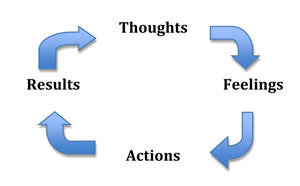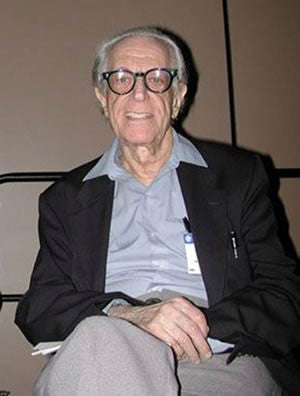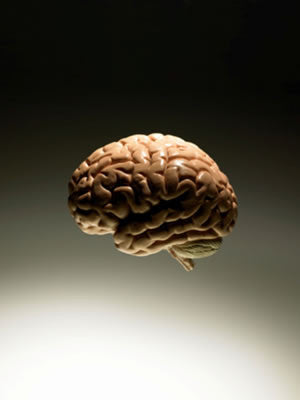How to Use Your Whole Brain: Changing Your Behavior
If you've ever tried to limit your calorie intake you know how challenging it can be to give up your favorite desert or fattening treat. Sometimes we just want what we want and there is no stopping us. The unconscious mind often secretly drives these seemingly "uncontrollable" desires. This leaves your conscious mind wondering: why am I so weak?
 If your mother always soothed you with sweets when you were a child, that pleasant association may be buried in your unconscious mind. Therefore, you may find it doubly hard to give up similar treats as an adult. This means that, whenever we try to change our behavior, we're setting up a battle between the conscious and unconscious mind. In this blog you're going to learn why this is just NOT a fair fight.
If your mother always soothed you with sweets when you were a child, that pleasant association may be buried in your unconscious mind. Therefore, you may find it doubly hard to give up similar treats as an adult. This means that, whenever we try to change our behavior, we're setting up a battle between the conscious and unconscious mind. In this blog you're going to learn why this is just NOT a fair fight.
Compared to the conscious mind, the unconscious mind is a behemoth. Still, we often make the mistake of underestimating the power of the unconscious mind. It's hard to appreciate the power of something so hidden and so mysterious. This aspect of the unconscious mind helps explain why psychologists prefer to study the CONSCIOUS mind: it's more observable, predictable, measurable and of course seems more rational than the unconscious mind. These natural advantages of studying the conscious mind have given rise to a form of therapy known as Cognitive Behavioral Therapy or CBT - which primarily focuses on a person's thinking or "rational" mind.
 Psychology's love affair with CBT has lead to the illusion that the conscious mind is the only part of the brain worth studying and by extension, treating. Treating the unconscious mind is now left to the fringes of mainstream medicine such as hypnotists, "new age" healers and energy medicine practitioners. Yet it's easy to see the importance of treating the unconscious mind when we are talking about addiction. Our addictions run deep in terms of the unconscious hold they have over our behavior.
Psychology's love affair with CBT has lead to the illusion that the conscious mind is the only part of the brain worth studying and by extension, treating. Treating the unconscious mind is now left to the fringes of mainstream medicine such as hypnotists, "new age" healers and energy medicine practitioners. Yet it's easy to see the importance of treating the unconscious mind when we are talking about addiction. Our addictions run deep in terms of the unconscious hold they have over our behavior.
We know for example, (from the work of researchers like behavior change expert, Dr. James Prochaska) that on average, half of all smokers go back to smoking full time after they have given up smoking for a whole year! In addition, half of all people who undergo surgery for lung cancer go back to smoking as well. To the conscious mind this just doesn't make ANY sense. It doesn't seem rational. But to the unconscious mind, it makes perfect sense.
If you've recently quit smoking, and you're going through a stressful period of your life - let's say you've been laid off from work or you're going through a stressful break-up - you know on a deep level, that smoking can soothe you. When your stress levels climb, even if you've gone a whole year without a single puff, that cigarette is- at least temporarily - going to help make those anxious feelings go away.
This invisible chokehold leaves frontline medical practitioners like nurses, counselors and wellness coaches at a loss for how to counsel their patients with addiction problems. They know how hard it is for their patients to give up smoking and change other addictive behaviors using the limited "cognitive" tools that are available to them. And they are left to wonder how to encourage ANY behavioral change without addressing deep-seated needs, desires, insecurities and a whole host of unconscious influences. (The medical world is just now admitting that certain foods - particularly processed foods like chips and high fat ice creams that are engineered to please the palette - are addicting, too)
So the success of cognitive therapy has come at a price. This emphasis on cognition (thinking and knowing) has caused there to be a de-emphasis on the unconscious mind. And believing we can treat the whole person by simply treating the conscious mind, as CBT is designed to do, is a bit like saying we know the whole iceberg, simply by observing what we see above the surface.
As the captain of the Titanic learned, when you do this, you do this at your peril (and everyone else who is onboard with you).
 Recently, I was introduced to the acronym T.F.A.R. which stands for Thoughts, Feelings, Actions, Results. This acronym is based on the work of the cognitive psychologists and, for me, helps illustrate one of the enduring weaknesses of cognitive therapy. As the acronym neatly suggests, first comes the thought, which then causes a feeling, which then leads to an action and which ultimately leads to the result. And this suggests that if you control your thoughts, you will in turn control everything else. For the last fifty years or more, everyone in the field of psychology and motivation has ASSUMED that this was absolutely true.
Recently, I was introduced to the acronym T.F.A.R. which stands for Thoughts, Feelings, Actions, Results. This acronym is based on the work of the cognitive psychologists and, for me, helps illustrate one of the enduring weaknesses of cognitive therapy. As the acronym neatly suggests, first comes the thought, which then causes a feeling, which then leads to an action and which ultimately leads to the result. And this suggests that if you control your thoughts, you will in turn control everything else. For the last fifty years or more, everyone in the field of psychology and motivation has ASSUMED that this was absolutely true.
But some experts are starting to challenge this belief. First and foremost, no one has EVER proven which comes first, the thought or the feeling. There is plenty of evidence to say that feelings come first. But the cognitive model would suggest otherwise. And what's interesting to contemplate, if feelings do come before thoughts - and we've all felt a wave of anger or sadness overtake us so quickly that the thoughts seem to FOLLOW the feeling - does this mean the cognitive model for behavioral change begins to break down?
 The title of Dr. Albert Ellis's book: How to Stubbornly Refuse to Make Yourself Miserable about Anything - Yes Anything highlights the over-confidence of the cognitive model. In his book, Ellis tells us that we make ourselves miserable as the result of our irrational thinking and faulty logic. Once we become aware of this irrational thinking and learn the tools for changing it, happiness (or at least contentment) is no more than a rational thought away. And to a large degree Ellis is right.
The title of Dr. Albert Ellis's book: How to Stubbornly Refuse to Make Yourself Miserable about Anything - Yes Anything highlights the over-confidence of the cognitive model. In his book, Ellis tells us that we make ourselves miserable as the result of our irrational thinking and faulty logic. Once we become aware of this irrational thinking and learn the tools for changing it, happiness (or at least contentment) is no more than a rational thought away. And to a large degree Ellis is right.
But every once in a while, there are times, (at least I've noticed) when it is virtually impossible to change an irrational thought (even when I KNOW it's irrational). There is just something stronger in an emotionally-charged situation than the conscious mind can grapple with (perhaps some long ago trauma or forgotten fear) that comes into play and prevents me from seeing things RATIONALLY.
For example, I know it's completely irrational when I act like a martyr. But it's something I learned from my mother and it's a hard behavior habit to break. Whenever I feel like I've been insulted or treated unfairly or teased or just out-dueled in an argument - even if I KNOW the hurt that's been inflicted by the other person was UNITENTIONAL, I will still occasionally stalk off, leaving that person unable to reason with me or to work it out. It doesn't matter how much I try to use my fairly well-developed cognitive skills to RETHINK my irrational thoughts, I still just want the irrational outcome and oftentimes, make it happen.
It's a choice* that is not even in my own best self-interest (which defines martyrdom)! I can see it and understand it, but I still act irrationally. So how is CBT going to help me, when I KNOW my thinking is irrational and I still can't or don't even wish to change it?
Now consider applying the techniques of CBT to a soldier with PTSD - which happens quite frequently. Imagine a therapist, skilled in the techniques of CBT, telling a former marine, who watched his buddy get blown to smithereens, and who irrationally blames himself for causing the accident, that he just needs to substitute a more rational thought when thinking about it. This cognitive approach is virtually useless when that marine is experiencing a full blown flashback while driving or a panic attack in the grocery store. Because there is no attention paid to the unconscious processes going on here. (In future blogs, we'll discuss techniques like mindfulness that are now used by the Army to teach soldiers how to distance themselves from their irrational thoughts without getting caught up in trying to change them.)
 I believe there is a way, to seed the unconscious mind or perhaps trigger it to work in harmony with what we want consciously: Even if the conscious mind is sometimes just a pawn of the unconscious mind. I also believe that we are NOT stuck with this metaphor of the two levels of consciousness battling it out with the unconscious mind usually providing the knockout blow that ultimately ruins our diets, our exercise programs and our best intentions.
I believe there is a way, to seed the unconscious mind or perhaps trigger it to work in harmony with what we want consciously: Even if the conscious mind is sometimes just a pawn of the unconscious mind. I also believe that we are NOT stuck with this metaphor of the two levels of consciousness battling it out with the unconscious mind usually providing the knockout blow that ultimately ruins our diets, our exercise programs and our best intentions.
The key to winning the battle between the conscious and the unconscious mind is to stop thinking of it as a battle to begin with. We need to start thinking of it as a partnership BUT with the conscious mind being the JUNIOR PARTNER. It may be the very fact that that the vast majority of people see the conscious mind as the senior partner that is causing all the problems. Once we accept who's really running our ship most of the time, then the conscious mind, as the junior partner, can work with the senior partner, the unconscious mind, to influence it, cajole it and wheedle it in the direction it wants the ship to go.
Think of it like the spouse of a President or a high ranking V.P. who has the ear of the person in power. That junior partner has a lot of influence over what the senior partner says and does.
There's an interesting therapeutic tool, known as motivational interviewing, that, even though it's been around for over 30 years now, is finally getting some much deserved attention. This behavioral change tool allows the therapist to help the patient work in partnership with the unconscious mind. When using this technique the therapist asks the patient to see the proposed behavior change in terms of what is important to him or her. If the patient says, my children are the most important thing in my life then a behavior change like quitting smoking is seen through the lens of what it would mean to the children. In this case, the patient's children would be less likely to take up smoking as adults, less likely to develop cancer from second hand smoke and the whole family would have more spending money for vacations.
Now the unconscious mind's own need for pleasure (smoking) is pitted against other just as strong (or stronger) unconscious needs to be loved and to do the right thing and even to go on VACATIONS! Thus the unconscious mind is conscripted by conscious mind to do battle with ITSELF. And as a result, now you have a MUCH fairer fight and the unconscious and conscious minds wind up working as a team.
There are plenty of other ways to align the conscious and the unconscious mind as we will see in future blogs. The key thing I've tried to highlight here is that when we focus on the conscious mind exclusively, we do so at our peril: We do it at the expense of not addressing and not understanding a vastly more powerful part of ourselves, the unconscious mind. And CBT (the most popular form of therapy by FAR) with its emphasis on the conscious mind does so at the cost of assuming the tip of the iceberg is the whole iceberg.
(In part 3 of this series we'll talk about communication between the conscious and the unconscious mind.)
*We'll talk more about whether this truly was a choice in a future blog





James Porter
Author